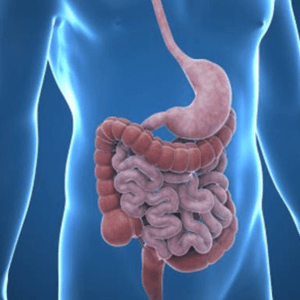Description
Antidiarrheal drugs: A introductory look
Antidiarrheal drugs (also called anti-diarrhoea agents) reduce the frequency and severity of diarrhoea episodes in children and adults with gastroenteritis. It can be caused by many factors, including stomach viruses, food poisoning, intestinal infections and stress. Diarrhoea is the passing of abnormally loose, watery stools. As a result, people with diarrhoea can lose a lot of fluid and salt from their bodies. This makes them feel weak or faint. In some cases, children may become dehydrated because they do not drink enough fluids to make up for what they have lost through diarrhoea.
Symptoms include fever, stomach cramps, nausea and vomiting. Severe dehydration may result in loss of consciousness or seizures if untreated by a doctor. Therefore, the sooner you get medical help for diarrhoea – the better chance your child will avoid suffering from severe dehydration that could threaten his life!
Pharmapk is committed to producing high-quality chemicals. We know how critical it is to maintain our standards, so we put great effort into making sure each batch of medications leaves the facility in excellent condition and ready for delivery anywhere on Earth. As a result, pharmacies use us as their go-to source when they need medication fast because not only do we offer a solution tailored specifically around your needs but also at an affordable price point–the best you will find anywhere!
How do antidiarrheal work?
It is essential to know that no single drug works well for everyone who has diarrhoea or stomach pain; instead, people need to find out which medication suits them best based on their symptoms and medical history. Some of these medications include loperamide, bismuth subsalicylate and kaolin-pectin.
They work by slowing or stopping the movement of the intestines, which relieves cramping and reduces watery stool. However, a primary concern with these drugs is that they can slow down bowel function too much if taken for long periods.
Antidiarrheal drugs: Side effects, drug interactions and risks involved
The use of antidiarrheal drugs has been associated with kidney dysfunction, liver problems and electrolyte imbalances. You need to be aware of these potential side effects when providing advice on using these medications. Antidiarrheal drug use can also cause serious bacterial infections in some cases. Other possible side effects include dizziness, drowsiness, tiredness, constipation, nausea/vomiting, irregular heartbeat, stomach pain and fainting.
Antidiarrheal drugs can be taken by mouth or applied to the skin (used topically). Some antidiarrheal medications contain zinc, which may interact with other drugs, including antibiotics. Antibiotics change how your body absorbs zinc, so you need to tell your doctor about any medicines you take before taking a new antibiotic prescription. Other medications that may interact include proton pump inhibitors and H2 blockers. A rare but severe allergic reaction to this drug is often seen. If you notice any more severe allergy symptoms such as rash, itching/swelling (especially around the face or throat), trouble breathing, then get medical help right away!
What are the precautions for taking antidiarrheal drugs?
The use of antidiarrheal drugs to treat diarrhoea has been around for centuries, but there are some precautions you should take when taking these medications. In most cases, these drugs can be taken for up to 5 days without serious side effects. However, there are some precautions you should take before beginning treatment with an antidiarrheal drug:
1) Avoid taking laxatives and other treatments that cause constipation while on an antidiarrheal medication – this could lead to severe complications like intestinal obstruction and bowel perforation;
2) Drink plenty of fluids (at least 3 litres per day) when taking any form of antidiarrheal medication – some of these medications reduce your body’s ability to absorb water, which can lead to dehydration;
3) Discuss any other drug you are taking with a healthcare provider before starting on an antidiarrheal medication.
Antidiarrheal varieties: Dosage form and strength Loperamide
Oral liquid
- 1mg/5ml oral liquid contains 1mg Loperamide per 5ml of oral liquid.
- 1mg/7.5ml oral suspension contains 1mg Loperamide per 7.5ml of oral liquid.
Oral suspension
- 1mg/7.5ml oral suspension contains 1mg Loperamide per 7.5ml of oral suspension.
Tablets
- 2mg tablet contains 2mg Loperamide per tablet.
Capsule
- 2mg capsule contains 2mg Loperamide per capsule.
Chewable tablets
- 2mg chewable tablets contains 2mg Loperamide per chewable tablet.
Bismuth subsalicylate
Caplet
- 262mg caplet contains 262mg bismuth subsalicylate per caplet.
Chewable tablets
- 262mg chewable tablet contains 262mg bismuth subsalicylate per chewable tablets.
Oral suspension
- 262/15ml oral suspension contains 262mg bismuth subsalicylate per 15ml of oral suspension.
- 525/15ml oral suspension contains 525mg bismuth subsalicylate per 15ml of oral suspension.
- 525/30ml oral suspension contains 525mg bismuth subsalicylate per 30ml of oral suspension.
- 1050/30ml oral suspension contains 1050mg bismuth subsalicylate per 30ml of oral suspension.





Reviews
There are no reviews yet.